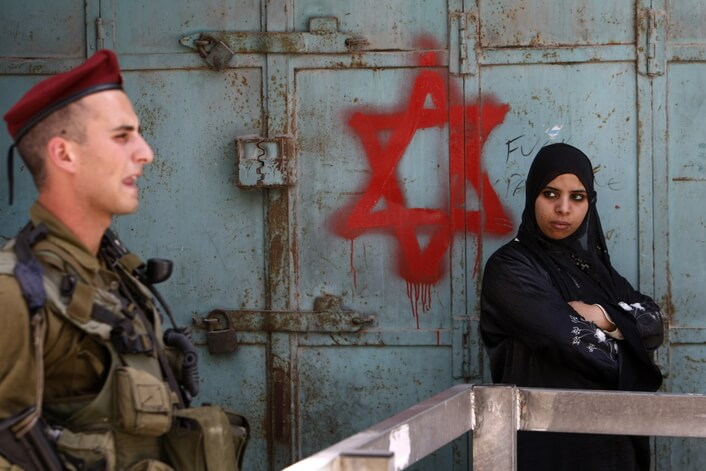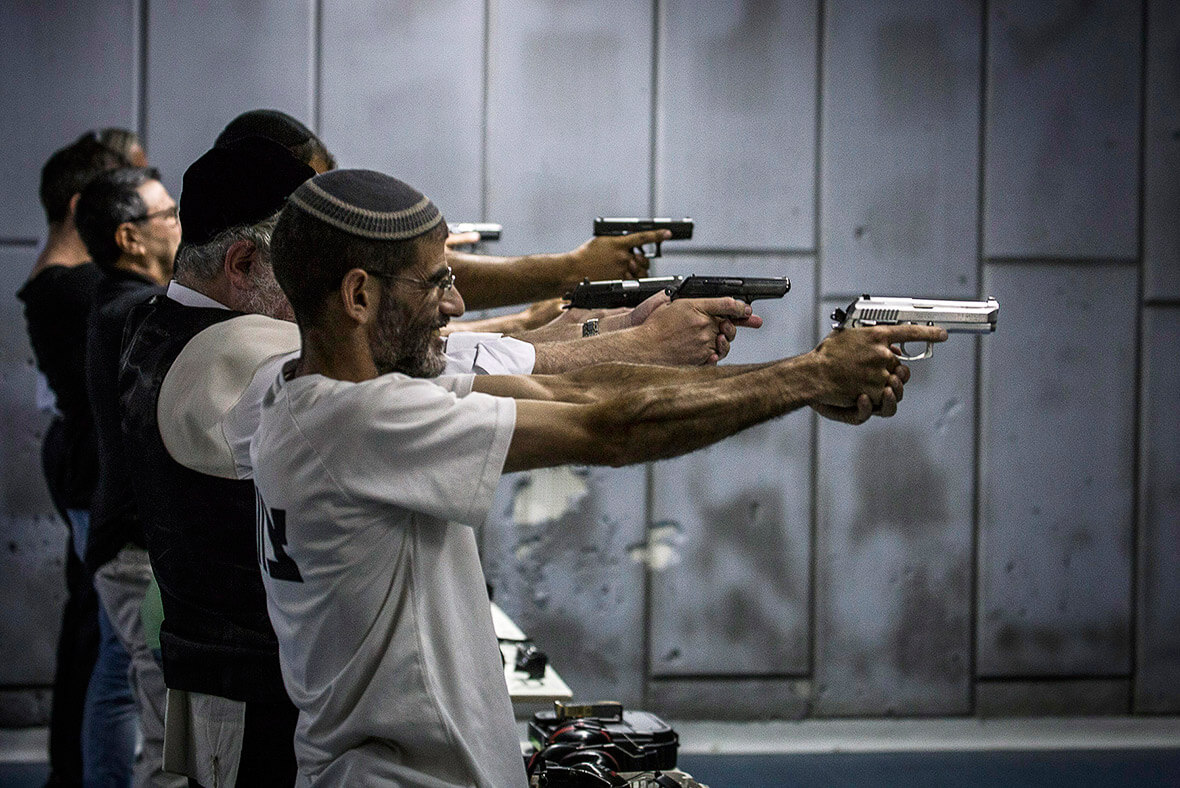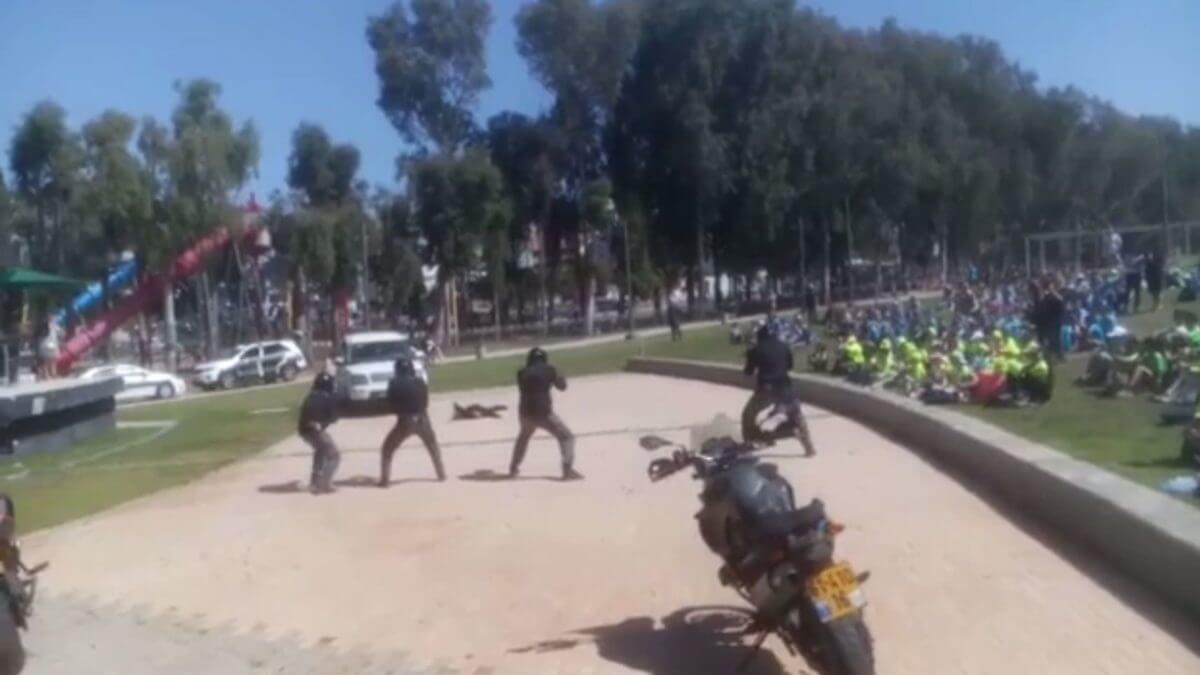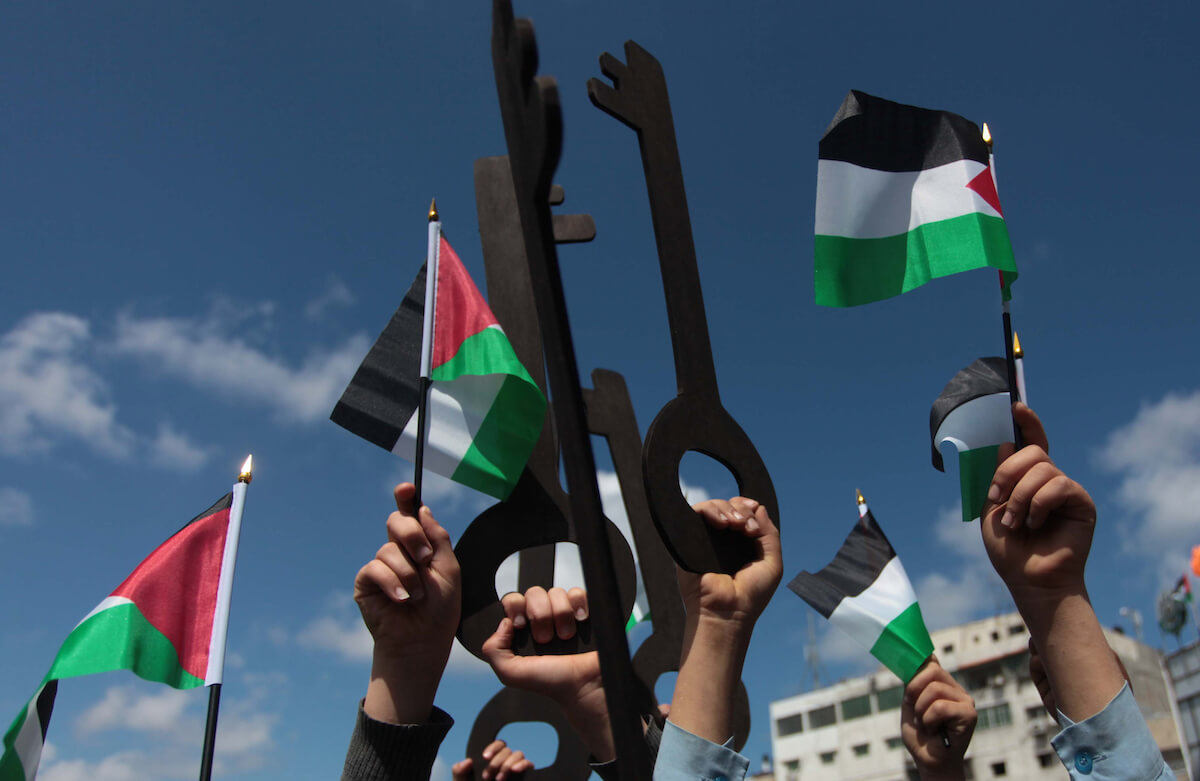Ma’an News Agency reports, “The Palestinian Central Elections Commission (CEC) reported that Fatah, the ruling party of the Palestinian Authority (PA), maintained a majority of local council seats, despite independent lists having scored a higher number of votes. While approximately 65 percents of seats up for grabs during Saturday’s election went to registered or independent lists in 145 municipalities, another 181 villages and towns mainly saw Fatah lists run unopposed. As anti-PA sentiment has continued to grow over the past year, a number of political factions, including Hamas, Islamic Jihad, and the Popular Front for the Liberation of Palestine (PFLP), decided to boycott the elections.”
The Jewish people have a centuries-long history of trauma, persecution, and exile as both victims and perpetrators. The Zionist project in Israel has further led to an endless series of violent conflicts. Consequently, war and trauma have further reinforced a state of collective PTSD within Israeli Jewish communities, which manifests in a persistent fear of annihilation even when threat sources are absent, abnormal defensive and aggressive reactivity and a susceptibility to fear reinstatement, i.e. persistent fear mongering and propaganda by Israeli politicians. The results of this collective PTSD is the victimization of other groups, most notably the Palestinian people.
Rebecca L. Stein talks with Rela Mazali, a founding member of the Israeli feminist organization Gun Free Kitchen Table which is working to decrease small arms proliferation in the Israeli public sphere and to eliminate the violence facilitated by easy access to firearms. In March the organization issued the report “Loose Guns: Israeli Controlled Small Arms in the Civil Sphere,” which finds that Israeli civil sphere is dangerously over-armed and that this condition has been normalized within mainstream Jewish Israeli society.
Haaretz newspaper in Israel gets death threats for its unblinking reports on Palestinian conditions, but the New York Times, once again moving mountains to support Israel, describes it as juvenile, antagonistic and contrarian, in a column by Shmuel Rosner.
In the latest tragedy for a well-known Gaza fishing family, Israeli forces have shot and killed Muhammed Majed Bakr, 25, while he was out fishing. Muhammed was the cousin of the four young boys killed in an incident that appalled the world when they were hit by an Israeli naval shell during the 2014 offensive against Gaza.
A display of Israeli-style community policing before an audience of hundreds of young schoolchildren was captured on video last week. Were the 10-year-olds offered road safety tips or advice on what to do if they got lost? No. In Israel, they do things differently. The video shows four officers staging a mock anti-terror operation in a park close to Tel Aviv. The team roar in on motorbikes, firing their rifles at the “terrorist”. As he lies badly wounded, the officers empty their magazines into him from close range. In Israel it is known as “confirming the kill”. Everywhere else it is called an extrajudicial execution or murder. The children can be heard clapping. The police were unrepentant about their staged execution, calling it “a positive, empowering” demonstration for the youngsters. The event was hardly exceptional.
Palestinians on Monday commemorated the 69th anniversary of the Nakba, meaning “catastrophe,” during which over 750,000 Palestinians were forcibly displaced from their homes in 1948, as Israel was declared a state. While the Right of Return for Palestinian refugees is generally at the center of all Nakba day commemorations, this year Palestinian prisoners took the front seat.
Shimrit Baer writes that Zionism should be resisted by non-Zionists: “The non-Zionist class/caste can and should be an agent for change. In this the non-Zionist class/caste must draw lessons from discourses elsewhere, for example from pan-African movements in South Africa and elsewhere, where spatial reform is seen as a prerequisite to equal rights, power, and self-determination.”
Ahmed Kabariti reports from Gaza: “Among Palestinians residing in Gaza, the prevailing view of the electricity crisis is that the PA wants control inside of Gaza and is using energy to send a message to Hamas — give up control of Gaza, or you will pay the cost of chaos.”









